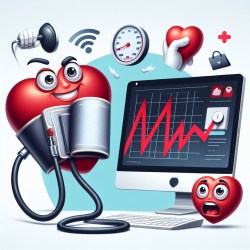Introduction
In the realm of healthcare, accurate blood pressure (BP) measurement is a cornerstone for diagnosing and managing hypertension. However, a startling number of BP devices in the market today are either inaccurate or have unverified accuracy. This raises significant concerns, especially when incorrect readings can lead to misdiagnosis and inappropriate treatment.
The Research Revelation
The Lancet Commission on Hypertension group position statement on the global improvement of accuracy standards for devices that measure blood pressure highlights a critical issue: many BP devices are not validated for accuracy. With over 3000 devices available, only a fraction has undergone rigorous testing. This lack of validation is exacerbated by weak regulations that allow devices to enter the market without proper accuracy checks.
Implications for Practitioners
For practitioners, relying on unvalidated BP devices can lead to:
- Misclassification of hypertension, potentially leading to unnecessary medication or missed diagnoses.
- Increased healthcare costs due to inappropriate treatment plans.
- Compromised patient trust and safety.
It is imperative for practitioners to ensure that the BP devices they use are validated according to international standards.
Recommendations for Improvement
The Lancet Commission recommends several key actions to address these issues:
- Mandatory independent validation of BP devices according to the International Organisation for Standardization (ISO) standards.
- Development of validation standards for new BP technologies, such as cuffless sensors.
- Creation of online lists of validated devices accessible to both consumers and health professionals.
Action Steps for Practitioners
Practitioners can take proactive steps to improve their practice by:
- Ensuring the use of validated BP devices in clinical settings.
- Educating patients about the importance of using validated devices for home monitoring.
- Staying informed about the latest standards and recommendations for BP device validation.
Conclusion
Accurate BP measurement is crucial for effective hypertension management. By adhering to the recommendations of the Lancet Commission, practitioners can enhance patient outcomes and contribute to reducing the global burden of high blood pressure. For those interested in delving deeper into this research, the original paper provides comprehensive insights and is available here.










